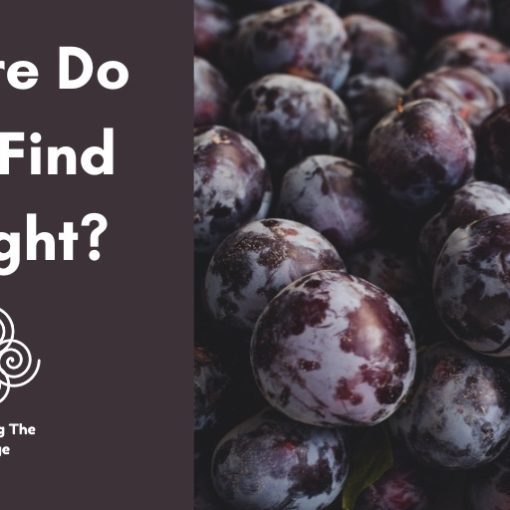You might be helping them too much and hinder any progress for them and yourself, but we can learn new ways of helping and see the change we want for them and ourselves.
She was helping too much, and the person she was helping didn’t mind one little bit. In fact, he was very adept at throwing guilt trips and manipulations to keep her supporting his lifestyle.
It wasn’t that she was doing anything wrong. Many people thought she was so wonderful how she took care of him and others. She was so generous and kind. What a lovely Christian woman, they said.
But underneath that mission of martyrdom, there was a dying soul. Life was being sucked out of her, and resentment was taking a foothold. For all the help, she was giving out, and nothing was coming back.
She had hoped for something different, but now patterns had been formed. Expectations of her compliancy were normalized. She was a slave to the foolishness of others and not a servant of truth.
Nabal and Abigail
In the bible, there is a fascinating story of an interplay between a husband and wife.
The husband, Nabal, was a wealthy and successful farmer. He is described as being ‘crude and mean in all his dealings’ and ‘ill-tempered.’ His servants lived in fear of him. When they had bad news for him, they were too afraid of him. Instead, they told his wife, Abigail.
Abigail is described as being ‘sensible and beautiful.’ She was one that the servants felt safe with. Most likely, she probably nudged and prodded Nabal into making good decisions and kept from making bad ones.
So the story goes that Nabal’s flocks and shepherds had been protected and kept safe by David and his men. David wanted some payment for his work, so he sent messengers asking for payment. Nabal, in his arrogance and foolishness, refused David and was unwilling to be generous.
David was furious and was going to come with 400 hundred men and attack Nabal.
Word of this gets to Abigail, and she intervenes with ‘sensible and beautiful’ wisdom. She meets David and his men before he gets to Nabal and calms the whole situation down.
When she returns to Nabal, he is partying like a king. She waits till the next morning, when he is sober, and tells him all of what had occurred.
He has a stroke in the shock of it all, and ten days later, he is dead.
I wonder
As I read this story, I wonder how many times had Abigail, and the servants had tiptoed around an angry, arrogant Nabal. How many similar stories were in the background that had enabled this fool to remain in his foolishness.
We all do it, though, don’t we? We tiptoe around some people, not wanting to rock the boat and cause upset.
But all along, a growing resentment and bitterness can eat away at the soul. Even Abigail considered Nabal a wicked and ill-tempered man, a fool, and not worthy of paying attention to.
We don’t know exactly what kept Abigail and the servants enabling Nabal’s bad behavior. Perhaps it was fear, often it is.
What we do know is that Abigail told it like it was. She told the story, and the story had the natural impact it needed to have.
Natural consequences
A natural consequence is anything that happens naturally.
If you go out in the rain, you are going to get wet. When you don’t eat, you get hungry. If you don’t pay your bills, such as Nabal, then the debt collectors will come.
You reap what you sow, and you don’t reap unless you sow.
When we intervene and protect people from the natural consequences of their actions, nobody learns anything. People often keep doing foolish things, and then we intervene, and they reap a crop different from what would have naturally grown out of their decisions.
Much of our kindness, I believe, is actually keeping people in systems of dependency.
People change when they
One of my favorite quotes about change is this one from John Maxwell.
People change when they hurt enough that they have to, learn enough that they want to, and receive enough that they are able to. John C. Maxwell
-
- Hurt enough, they have to. Often it isn’t until the pain is so unbearable that there is a realization that change is needed. Consider the prodigal son eating pig food. It wasn’t until then that he ‘came to his senses’
- Learn enough that they want to. It’s all very well knowing you have to change or being told you have to change, but what is the process for changing, and what is the motivation? Often it is only when we learn some new information, have a roadmap and get some instruction that change can take place.
- Receive enough they are able to. I like this because it talks to me about the need for encouragement and support—someone cheering on the millimeter movements.
You have to have all three.
Let’s get pragmatic about helping
We can get so easily swamped down in the emotions of our problems. The fears and anxieties become giants towering over our lives. We cower and live in fear of the unknown.
At times we need to get very logical and pragmatic about the situations we face.
Pragmatic – dealing with things sensibly and realistically in a way that is based on practical rather than theoretical considerations.
It’s nuts and bolts. What can and can’t be done.
This is why I love the Problem-solving process. It takes the problem out of the emotional realm and into the practical realm.
When we can become quite pragmatic about the problems, we have then practical solutions can emerge.
Quotes to consider
- God doesn’t always save us from the consequences of our actions. But He doesn’t celebrate our pain either. He doesn’t ask us to minimize it or pretend it isn’t there. Instead, He offers His love and unending compassion as we walk through whatever we’re facing. Aundi Kolber Try Softer
- God has solutions for people who admit they have problems. Larry Crabb
- Our primary purpose is not to use God to solve our problems, but to move through our problems toward finding God. Larry Crabb
- You cannot save everyone. Some people are going to destroy themselves no matter how much you try to help them.
- Are you a rescuer? A person allowed to avoid the consequences of their faulty decisions is also sentenced to constantly repeat their mistakes, for they did not have to learn from them. D. Riddell
- Whose problem is it? Don’t own your child’s [or anyone else’s] problem for them. They must experience the consequences of their own faulty choices. D. Riddell
- Don’t punish people. Just let the consequences of their choices do your punishing for you. D. Riddell
Questions to answer
- What problems do you need to get more pragmatic about?
- Why do we take on others’ problems as if they were our own?
- What did you think about this quote from John Maxwell? How could it be applied to your life? People change when they hurt enough that they have to, learn enough that they want to, and receive enough that they are able to. John C. Maxwell
Further Reading
Just waiting for an ‘Anointing’ to wash my problems away: Toxic Faith pt 2
Barry Pearman
Photo by Priscilla Du Preez on Unsplash

Barry is a writer, coach, and course creator that has a passion for Mental Health and Spiritual Formation.
Contact me here
Get two free ebooks. One about Depression and one about Spiritual Exercises that will help your Mental Health





